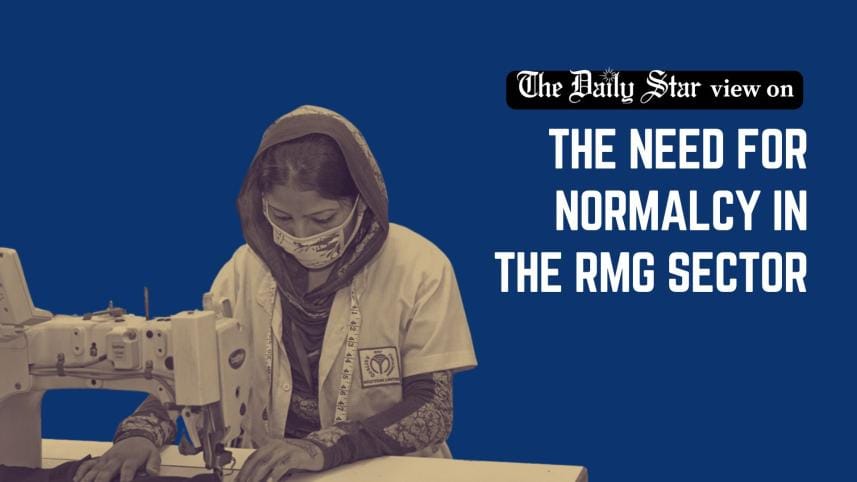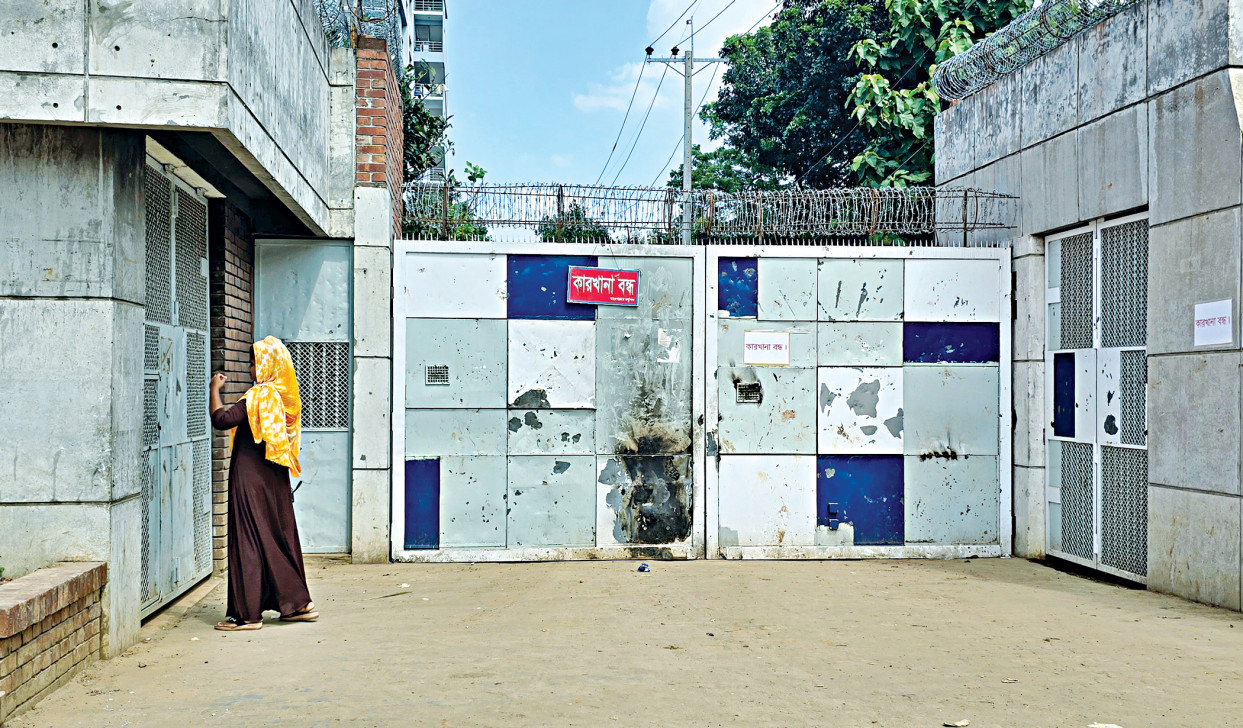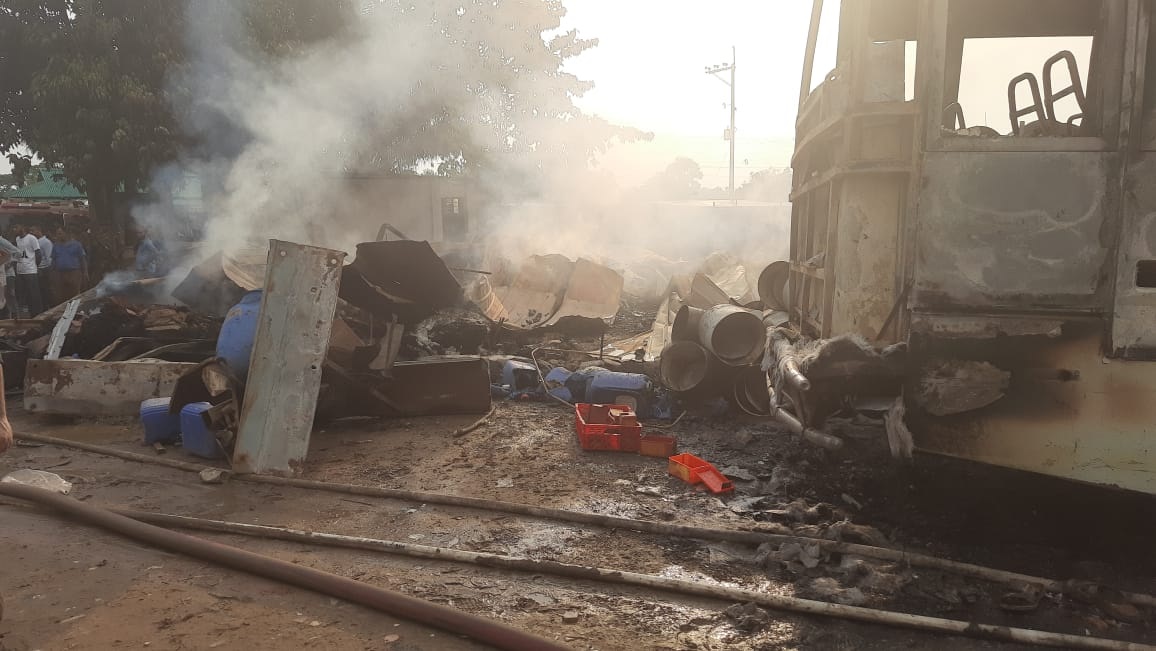Bring back normalcy in the RMG sector

We are gravely concerned about the ongoing unrest in our RMG industry as workers continue to protest in Ashulia, Zirabo, Savar and Gazipur over payment of arrears, better pay, job regularisation, increase of allowances and benefits, etc. According to the BGMEA, on September 12 alone, 219 garment factories in Gazipur and Ashulia were closed down due to workers' protests. Reportedly, in many areas, the protests took a turn for the worse as a result of unresolved negotiations with factory owners over their demands. Workers allegedly vandalised many factories; some of them were also set on fire. The question is: how has the situation come to this point?
According to industry insiders as well as some labour leaders, outsiders and political elements are trying to instigate the workers. It is imperative that, under the circumstances, a proper investigation is conducted immediately to identify the external factors responsible for the vandalism and destruction of properties. Owners have also pointed out that the industrial police are yet to start functioning fully in the industrial belts since the Hasina government was ousted around six weeks ago, fuelling safety concerns. This prolonged state of insecurity must be addressed by the interim government urgently, and the role of the industrial police—who have been used by successive governments to quell workers' protests—must also be re-evaluated to restore trust in the force.
Even if the allegations of external forces trying to create instability in the sector are true, we need to understand and address the underlying frustrations of the workers. During the 15 years of Awami League rule, we saw how the workers' legitimate demands were routinely disregarded. Last year, when the workers demanded Tk 23,000-25,000 as their monthly minimum wage, the government fixed it at Tk 12,500 in compliance with the proposal made by RMG factory owners. Sadly, many owners are still depriving their workers of their dues and aggravating an already volatile situation. Meanwhile, RMG factories are yet to institute an equitable mechanism for negotiations between workers and owners. Such practices must come to an end and workers' grievances must be properly addressed.
As production in a lot of factories remains suspended, there are concerns among the owners about financial losses they might incur, which will eventually affect our economy and the workers at large. There are, in fact, real reasons to worry as the disruption in production has already led many international buyers to cancel their trips to the country to finalise work orders for the coming seasons. Under the circumstances, we urge the interim government to act promptly to understand and act on the simmering frustrations on the ground. Its decision to review the workers' wage through the minimum wage board is a step in the right direction. The government also said it would consider inflation and the rising prices of essentials while reviewing the minimum wage, which is only the right thing to do. It also needs to take steps to improve security at the RMG factories, support the manufacturers in need, address the international buyers' concerns, and ensure stability and competitiveness in the sector.



 For all latest news, follow The Daily Star's Google News channel.
For all latest news, follow The Daily Star's Google News channel. 


Comments